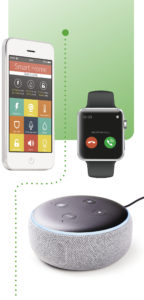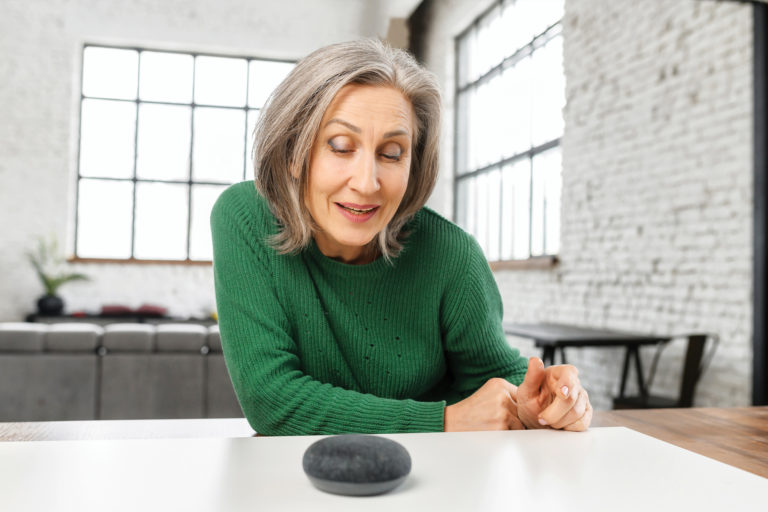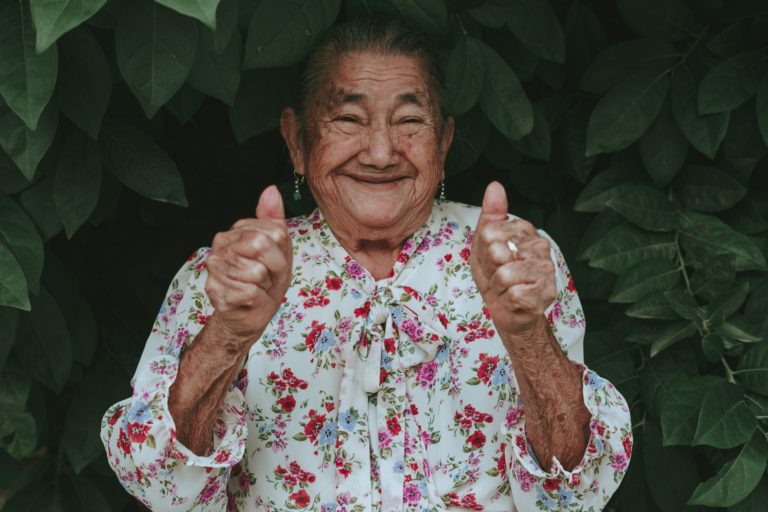
Janis MVK is the founder of a content writing and marketing creation house, specializing in the art of words and marketing management.
Virtual voice assistants provide crucial services for older adults
For younger generations, technology is as normal as air. With smartphones, smart cars, and smart homes, it’s hard for anyone born after the 1990s to imagine what life was like before the internet. While many older adults don’t have the same relationship with technology, tech can make daily tasks more convenient, and, in some cases, even save lives.
Enter virtual assistants like Apple’s Siri and Google’s Google Assistant. In 2022, 123.5 million U.S. adults will use voice assistants at least once per month, and that number will only continue to increase over time, according to market research company Insider Intelligence.
Most people use these devices to play music, give weather updates, and provide news and traffic reports. But voice assistants can also assist older adults in a variety of ways, from medication reminders to emergency alert systems — so long as the power or WiFi stays on. This is especially important for older adults with mobility and memory issues, as well as those at greater risk of falls.
Appointments and medications
Put the voice assistant in charge of daily schedule reminders. Humans may have trouble remembering medications or appointments for chronic medical issues, but voice assistants never forget.
“A built-in calendar with automated reminders can mean the difference between missing a physical therapy appointment or getting the treatment one may need,” says Cindy Shaw, owner of Home for Life Advantage, an accessibility equipment provider in Sugar Grove, Illinois.
Prior to this technology, the senior would rely on a caregiver or family member to provide the requested assistance.”
Gina Knight, certified aging-in-place specialist and president of Kastle Keeper, adds, “Alexa can provide pre-configured scheduled medication reminders. The device’s content is specifically designed for each individual and can recognize changes in the senior’s condition and physical activity.”
Connecting apps and devices
By using voice commands, older adults can complete a task without lifting a finger. “Prior to this technology, the senior would rely on a caregiver or family member to provide the requested assistance,” Knight says.
 Doorbells and thermostats are two devices commonly connected to virtual assistants. However, virtual assistants can work with countless other apps and devices, too. They can even work with smart faucets and showers.
Doorbells and thermostats are two devices commonly connected to virtual assistants. However, virtual assistants can work with countless other apps and devices, too. They can even work with smart faucets and showers.
“Some features that virtual assistants have that may not be as widely known include blood pressure monitoring, turning on a night light on the way to the bathroom, and improving your mood with daily affirmations or meditation practices,” Knight says. “Artificial intelligence motion sensors can detect a fall with connectivity directly to 911, along with motion detection to a room when a senior has restricted access.”
Emergency services
Virtual assistants also provide an important way to communicate. “Along with emergency services, virtual assistants can help [older adults] stay in touch with those who matter, hands-free, rather than navigating a cumbersome cellphone,” Shaw says.
Nick Johnson (whose name has been changed for privacy), a professional in the geriatric home renovation industry, installed Alexa in his grandparents’ home after they both experienced emergencies. His grandmother had passed out from a severe fever in the middle of her home. “After she woke up, she was unable to pick herself back up and had to lay on the floor for hours until my grandfather came home,” Johnson says. On a separate occasion, Johnson’s grandfather had suffered immobility, unable to get up from his chair alone.
Neither of Johnson’s grandparents had a phone nearby or a way to call for help when these situations occurred. By installing the virtual assistant, Nick’s grandparents now have a way to call out for assistance in case of emergency.
To avoid making his grandparents feel self-conscious or like they were losing independence, Johnson branded the devices primarily as a way to play music. “I showed them how they can call their contacts, but I did not initially market the devices to them using this as the flagship feature,” he says.
The only learning required for Johnson’s grandparents was knowing which phrases to say.
“They quickly understood the concepts of checking the weather, watching news briefings, playing music, making phone calls, and setting reminders,” he says. “But I wrote down a list of available commands I felt were relevant and placed them next to the main Alexa device in their kitchen.”
These devices are not only saving lives, they’re providing a source of companionship and entertainment.
“Virtual assistants can provide a world of enjoyment through games or through staying in touch with loved ones,” Shaw says.
They’re also proving themselves as one more important tool tosupport older adults and help them maintain their independence.






